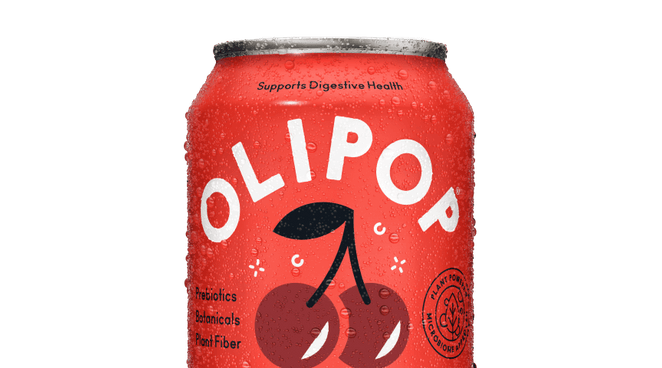According to the World Health Organization,1 the Center for Disease Control,2 and almost every major health organization, obesity is the “biggest threat to the health of our nation”.
This fear of the consequences of being fat fuels the fire behind our society’s diet culture. But the problem with fear and shame-based tactics is that they don’t work. And, as it turns out, they lead to even unhealthier behaviors and outcomes.
What Is Diet Culture?
Diet culture refers to the beliefs ingrained in our society that skinny is beautiful and the key to happiness is weight loss. The focus of diet culture is not on being healthy, it’s about being skinny. And anyone who doesn’t fall into that mold is told that they don’t fit in, they’re not as worthy, and they have to do whatever it takes—like embarking on unhealthy and unrealistic dieting plans—to achieve this desired thinness.
Some signs of diet culture are pretty easy to spot such as no-carb diets and language like “counting calories” and “I worked out so I deserve this”. But diet culture goes far beyond dieting pills and fad diets. You can find diet culture in the shrinking size of seats on airplanes. In the doctor’s office through our use of BMI as a measurement of health. In job interviews where obese candidates are seen as less suitable. Or through the government-funded “war on obesity”.3
Other aspects of diet culture blend in, positioning themselves under the guise of health and wellness. Yet dig deeper and you’ll find that the “health” they’re pushing is equated with size, even though the research, as we discuss below, doesn’t always support this.
This includes health and wellness brands that only use skinny models in their advertisements or health magazines that use editing software to slim down the model on the front cover, creating an unattainable standard of beauty.
Why Is Diet Culture Unhealthy?
This kind of pervasive diet culture affects everyone. It tells you that the number you see on the scale is a measurement of your self-worth. This can have harmful consequences regardless of your weight or gender. And here are several reasons why:
1. It assumes that weight is an indicator of health
A great place to start is the justification we use for diet culture, which is that being fat is unhealthy. This is why we have a “war on obesity” because diet culture thrives on this belief that to be healthy you need to be skinny.
But here’s the problem with that: you can be heavy and still be healthy, or alternatively, skinny and unhealthy. Healthy bodies exist in all shapes and sizes.3 You can’t look at someone’s physical appearance and make assumptions about their health.
For example, data from the U.S. National Health and Nutrition Examination Survey (NHANES) found that almost half of those considered overweight by BMI standards, 29% of those considered obese, and 16% of those in obesity class II (BMI 35-40) and III (BMI 40+) are healthy. Their blood pressure, triglycerides, cholesterol, fasting glucose, insulin resistance, and C-reactive protein levels were all normal.4 5
Weight is often the result of certain behaviors and factors, not the cause. And that’s an important distinction. For example, a sedentary lifestyle or poor diet can result in weight gain. But it’s not the weight that leads to poor health outcomes, it’s the behavior. And sometimes factors far outside of your control cause weight gain like limited access to healthy foods, genetics, metabolism, or disability.4 6
This goes to show that it’s not your weight that we need to be focusing on. It’s often the behaviors and factors behind the weight gain that are detrimental to your health, not the weight itself. The focus needs to shift away from weight and towards healthy behaviors like joyful movement or diet diversity, as well as working to change the systems that block access to these kinds of healthy behaviors.7
So what other methods of measurement should we be using to measure our health? Check out our blog for six health metrics that are more important than weight.
2. It normalizes unhealthy eating and exercising behaviors
We eat to nourish our bodies and give us energy. We move our bodies because it feels good. Yet diet culture replaces these joyful and nourishing purposes with stress and shame, telling us that exercise is a punishment and food is either “good” or “bad”.
But instilling a fear of being fat does far more harm than good. This societal pressure to lose weight often results in damaging behaviors—like fad diets that cut out healthy food groups, disordered exercising behaviors, eating disorders, or even surgeries like bariatric surgery that can result in life-altering or even fatal side effects.3 4 6
So many people put themselves through this because they’re told time and time again that it’s worth it to be skinny. And sadly, many of these disordered eating and exercising behaviors are encouraged.3 Yet, all these actions take us further away from a healthy lifestyle. In reality, focusing on weight makes us more unhealthy—and unhappy—as a society.
3. It creates a self-perpetuating cycle
Weight stigma often results in the weight gain that diet culture is trying so hard to avoid in the first place. In other words, calling someone “fat” is far more likely to lead to weight gain than weight loss. In one longitudinal study, for example, researchers found that young girls called “too fat” by their peers at age 10 were 66% more likely to have an “obese” BMI by the age of 19.4 8
By using fear and shame-driven tactics we’re actually driving people away from healthy behaviors. In one study, researchers found that weight stigma resulted in lower motivation for physical activity and a higher likelihood of disordered eating. This kind of shame-based stigma also results in higher levels of stress and anxiety, which is a huge risk factor for a whole host of health conditions.4
So by telling people to lose weight we’re introducing shame, guilt, and stress that often leads to unhealthy behaviors. These behaviors often result in weight gain. This weight gain then leads to more shame, guilt, and stress, and the cycle continues.
4. It sets us up for failure
Diet culture also rests on the assumption that weight loss is completely within your control—and sometimes it’s even advertised as “easy”. All you have to do is take our magic weight loss pill, join our weight loss plan, or sign up for our gym membership. And if you fail to lose weight, it’s your fault. Clearly, you’re not working hard enough, spending enough, or caring enough.
But as much as diet culture likes to tell us otherwise, weight loss is not easy and it’s not always possible.4 In one of the largest and longest controlled dietary intervention studies by the Women’s Health Initiative, researchers tracked over 20,000 women on a low-calorie diet for over eight years.6 At the end of the study, there was almost no change to the average waist circumference of participants.6 In other words, dieting very rarely results in weight loss.
And this isn’t for lack of trying. Even the most dedicated dieters are facing a sometimes un-winnable battle against genetics or slow metabolisms. Even when you have genetics or a fast metabolism working in your favor, dieting can change your hormones and brain processing, making high-calorie and fatty foods even more desirable.4
Several studies have also found that of those who do manage to lose weight through dieting, most end up gaining that weight back. And this kind of weight fluctuation could have some pretty detrimental results. Putting your body through a rollercoaster ride of weight gain and loss could result in poorer cardiovascular health, inflammation, hypertension, insulin resistance, and other potential health concerns.4 6
So at the end of the day, this focus on losing weight is only hurting instead of helping. For most people trying to lose weight, it only ends in unhealthier outcomes.
5. It perpetuates discrimination
This preference for skinny bodies in a toxic diet culture creates a feeding ground for weight discrimination.9 Studies have found that weight discrimination results in fewer educational opportunities10 11 and poorer quality healthcare for those in bigger bodies.3 12 This weight stigma discourages people from seeking out medical care for fear of being treated differently.7 Experiencing these and other forms of weight discrimination increases your likelihood of mortality by almost 50%. 4 15
When it comes to job interviews and the hiring process, companies are less likely to hire overweight candidates versus their skinnier counterparts.9 13 And once hired, overweight employees tend to face weight discrimination in the workplace, make less money, and receive fewer positions in leadership.14
And we can’t have a discussion about weight discrimination without mentioning the fact that our society’s shift to skinny as the ideal state of beauty began through racism. Before the 18th and 19th centuries, being heavier was a sign of wealth. But with the growth of the slave trade, that started to shift. Women—primarily white middle and upper-class women—were encouraged to watch what they ate as a way to show their “racial superiority” to the more curvy and full-bodied slaves.16
That racial discrimination still carries over to today through mechanisms like BMI, a system of measurement developed in the 1830s that only relied on a sampling of white men. Yet, we still use this system of measurement today even though it fails to take muscle mass, bone density, or any cultural, environmental, or genetic influences on weight into consideration.16
6. Allows people to profit off of insecurities
So who’s winning in this diet culture? That would be the brands selling you the weight loss pills, diets, and products. They’re profiting off of your insecurities. It’s estimated that over 45 million Americans embark on a dieting journey every year.17 This results in a U.S. weight loss industry that is now worth over $72 billion.18
Instead, Practice Self-Love
When you look in the mirror or step on the scale and hear that negative nagging voice in the back of your head, remind yourself that this is diet culture speaking. The belief that we need to be rail-thin is not based on science, it’s based on marketing. It’s a billion-dollar industry telling you that you need to look a certain way.
But health is not one-size-fits-all. And as we’ve shown, diet culture doesn’t make us skinnier, and it certainly doesn’t make us any healthier. So let’s stop using the scale as a measurement of self-worth and practice self-love instead. And the best form of self-love is taking care of your body in a way that feels good for you.
Sources
- World Health Organization. (n.d.). Controlling the global obesity epidemic. Retrieved February 10, 2022, from https://www.who.int/activities/controlling-the-global-obesity-epidemic
- Centers for Disease Control and Prevention. (2021, March 22). Adult Obesity. Retrieved February 10, 2022, from https://www.cdc.gov/obesity/adult/causes.html
- Chastain, R. (2019, May 2). Recognizing and Resisting Diet Culture. National Eating Disorders Association. Retrieved February 10, 2022, from https://www.nationaleatingdisorders.org/blog/recognizing-and-resisting-diet-culture
- Hunger, J. M., Smith, J. P., & Tomiyama, A. J. (2020). An Evidence‐Based Rationale for Adopting Weight‐Inclusive Health Policy. Social Issues and Policy Review, 14(1), 73–107. https://doi.org/10.1111/sipr.12062
- Tomiyama, A. J., Hunger, J. M., Nguyen-Cuu, J., & Wells, C. (2016). Misclassification of cardiometabolic health when using body mass index categories in NHANES 2005–2012. International Journal of Obesity, 40(5), 883–886. https://doi.org/10.1038/ijo.2016.17
- Bacon, L., & Aphramor, L. (2011). Weight Science: Evaluating the Evidence for a Paradigm Shift. Nutrition Journal, 10(1). https://doi.org/10.1186/1475-2891-10-9
- Tagle, A., & Schneider, C. M. (2022, January 4). Diet culture is everywhere. Here’s how to fight it. NPR. Retrieved February 10, 2022, from https://choice.npr.org/index.html?origin=https://www.npr.org/2021/12/23/1067210075/what-if-the-best-diet-is-to-reject-diet-culture
- Hunger, J. M., & Tomiyama, A. J. (2014). Weight labeling and obesity: A longitudinal study of girls aged 10 to 19 years. JAMA Pediatrics, 168(6), 579. http://doi.org/10.1001/jamapediatrics. 2014.122
- University of Connecticut. (2017). Weight Bias: A Policy Brief. UConn Rudd Center for Food Policy & Health. https://media.ruddcenter.uconn.edu/PDFs/Weight%20Bias%20Policy%20Brief.pdf
- Incollingo Rodriguez, A. C., Heldreth, C. M., & Tomiyama, A. J. (2016). Putting on weight stigma: A randomized study of the effects of wearing a fat suit on eating, well-being, and cortisol. Obesity, 24(9), 1892–1898.
- Incollingo Rodriguez, A. C., White, M. L., Standen, E. C., Mann, T., Wells, C. R., & Tomiyama, A.J. (2018). Body mass index and educational inequality: An update of Crandall (1995). Stigma and Health, 4(3), 357–363.
- Hebl, M., & Xu, J. (2001). Weighing the care: physicians’ reactions to the size of a patient. International Journal of Obesity, 25(8), 1246–1252. https://doi.org/10.1038/sj.ijo.0801681
- Flint, S. W., ČAdek, M., Codreanu, S. C., Ivić, V., Zomer, C., & Gomoiu, A. (2016). Obesity Discrimination in the Recruitment Process: “You’re Not Hired!” Frontiers in Psychology, 7. https://doi.org/10.3389/fpsyg.2016.00647
- Giel, K. E., Thiel, A., Teufel, M., Mayer, J., & Zipfel, S. (2010). Weight Bias in Work Settings – a Qualitative Review. Obesity Facts, 3(1), 33–40. https://doi.org/10.1159/000276992
- Sutin, A. R., Stephan, Y., & Terracciano, A. (2015). Weight discrimination and risk of mortality. Psychological Science, 26(11), 1803–1811.
- Strings, S. (2019). Fearing the Black Body: The Racial Origins of Fat Phobia (First edition. ed.). NYU Press.
- Americans Spend $30 Billion a Year Out-of-Pocket on Complementary Health Approaches. (2016, June 22). NCCIH. Retrieved February 10, 2022, from https://www.nccih.nih.gov/research/research-results/americans-spend-30-billion-a-year-outofpocket-on-complementary-health-approaches
- AP News. (2019, February 25). The $72 Billion Weight Loss & Diet Control Market in the United States, 2019–2023 - Why Meal Replacements are Still Booming, but Not OTC Diet Pills - ResearchAndMarkets.com [Press release]. https://apnews.com/press-release/business-wire/business-lifestyle-health-united-states-ec35f3315f9a4816985615391f41815a
- Diet culture assumes that weight is an indicator of health.
- Diet culture normalizes unhealthy eating and exercising behaviors.
- It creates a self-perpetuating cycle and sets us up for failure.

















